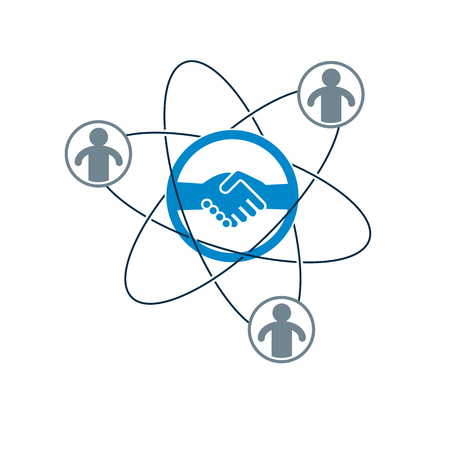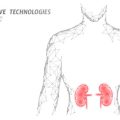Introduction to Collaborative Planning in Rehabilitation
Rehabilitation is a journey best navigated together. In the United Kingdom, collaborative planning stands at the very heart of effective rehabilitation, ensuring that each person receives care tailored to their unique needs and circumstances. This approach draws on the strengths of a multi-disciplinary team, led by General Practitioners (GPs), who work closely with physiotherapists, occupational therapists, social workers, and other health professionals. The context of the NHS fosters this teamwork, with its strong emphasis on community-based services and holistic patient support. By bringing together expertise from different disciplines, collaborative planning not only addresses medical needs but also the social and emotional aspects of recovery. In this way, rehabilitation within the UK’s healthcare system becomes a truly comprehensive process—centred on compassion, dignity, and partnership.
2. The Role of GPs in the Rehabilitation Journey
General Practitioners (GPs) are often the first point of contact for individuals embarking on their rehabilitation journey within the UK’s NHS framework. Their role is not just limited to diagnosing and treating medical conditions; GPs act as crucial coordinators and advocates, ensuring that each person receives bespoke, person-centred care tailored to their unique needs. From the initial assessment through to ongoing follow-up, GPs form a compassionate bridge between patients and the wider multi-disciplinary team (MDT), always keeping individual well-being at the forefront.
Initial Assessment and Goal Setting
The rehabilitation process typically begins with a comprehensive assessment conducted by the GP. This involves understanding the patient’s medical history, current challenges, and personal goals—whether it’s regaining independence after surgery or managing a long-term condition. By actively listening and involving patients and their families in these discussions, GPs set the tone for collaborative planning.
How GPs Support Person-Centred Care
| Stage | GP’s Role | Person-Centred Actions |
|---|---|---|
| Initial Assessment | Holistic evaluation | Listening to patient values and preferences |
| Referral Process | Liaising with MDT | Ensuring timely access to relevant specialists |
| Ongoing Support | Monitoring progress, adjusting plans | Regular check-ins, adapting care as needed |
Coordinating with Multi-Disciplinary Teams
Once needs are identified, GPs collaborate closely with physiotherapists, occupational therapists, nurses, social workers, and other allied health professionals. Through regular case conferences and shared digital records—a hallmark of the UK system—GPs ensure everyone is aligned in supporting the patient’s recovery goals. They remain an accessible point of continuity, helping families navigate services and advocating for adjustments when circumstances change.
Compassionate Advocacy Throughout the Journey
The GP’s involvement doesn’t end after referrals are made; they provide ongoing medical oversight, emotional reassurance, and a listening ear during moments of uncertainty. This gentle presence reassures patients and carers alike that they are not alone on their path to improved wellbeing. In every step, from paperwork to progress reviews, GPs embody a warm partnership ethos central to high-quality rehabilitation in the UK.

3. Key Members of a Multi-Disciplinary Team
In the UK’s rehabilitation landscape, the collaborative efforts between GPs and other health and social care professionals are vital for delivering holistic, patient-centred care. Understanding who makes up the multi-disciplinary team (MDT) helps families and patients appreciate how each member contributes to recovery.
Physiotherapists
Physiotherapists are essential in supporting individuals to regain movement and strength following illness or injury. They work closely with GPs to develop tailored exercise programmes, support pain management, and provide guidance on mobility aids or adaptations at home. Their expertise is invaluable in helping patients achieve realistic goals that support independence.
Occupational Therapists
Occupational therapists (OTs) focus on enabling people to participate in everyday activities despite physical, cognitive, or emotional challenges. OTs assess how a person’s condition affects their daily life and collaborate with GPs to recommend practical solutions—whether it’s adapting the home environment, suggesting new routines, or introducing assistive technology—to promote autonomy and dignity.
Social Workers
Social workers play a crucial role in addressing the wider social and emotional needs that can impact rehabilitation. They help coordinate community resources, provide advice on benefits or housing, and support families navigating complex care arrangements. By working alongside GPs and other clinicians, social workers ensure that care plans consider not just medical, but also social wellbeing.
How These Professionals Complement GPs
Each professional brings unique skills and perspectives that enrich the MDT’s approach. While GPs oversee the medical aspects of rehabilitation—such as diagnosis, prescribing medications, and monitoring overall health—physiotherapists, occupational therapists, and social workers add layers of specialist knowledge and practical support. Through regular meetings and shared care plans, these professionals communicate openly to ensure all aspects of a patient’s health are addressed comprehensively. This collaborative ethos reflects the best of UK healthcare: compassion, teamwork, and respect for individual needs.
4. Communication and Coordination Strategies
Effective rehabilitation in the UK relies heavily on clear communication and robust coordination among General Practitioners (GPs) and multi-disciplinary teams (MDTs). These strategies ensure that patient care remains consistent, person-centred, and holistic throughout the rehabilitation journey.
Practical Methods for Effective Communication
GPs frequently use structured approaches to facilitate seamless information sharing. This includes secure NHS email systems, shared electronic health records, and regular updates via clinical messaging platforms. Open channels of communication help reduce misunderstandings and support timely interventions tailored to each patients evolving needs.
Case Conferences
One of the cornerstones of collaborative planning is the case conference—a structured meeting where GPs, physiotherapists, occupational therapists, social workers, nurses, and sometimes family carers gather to discuss complex cases. These meetings allow all parties to share insights, clarify roles, and agree on unified goals for the patients rehabilitation. Case conferences are usually scheduled at key points during a patient’s recovery or when significant changes in their condition occur.
Shared Care Plans
Shared care plans are central documents developed collaboratively by all team members involved in a patient’s care. They outline treatment objectives, intervention timelines, responsible professionals, and criteria for monitoring progress. In UK practice, these plans are regularly reviewed and updated as part of ongoing MDT discussions.
Common Tools Used in UK Practice
| Communication Tool | Purpose | Typical Use |
|---|---|---|
| NHS Email & EHR Systems | Secure information exchange | Routine updates between GPs and MDTs |
| Case Conferences | Holistic review of complex cases | Scheduled meetings for collaborative decision-making |
| Shared Care Plans | Cohesive goal-setting and tracking | Documenting agreed interventions and responsibilities |
A Gentle Reminder
The heart of successful rehabilitation lies not just in medical expertise but also in compassionate collaboration. By nurturing open dialogue and mutual respect within the team, GPs help create a supportive environment where patients feel heard and valued—ensuring every step forward is taken together.
5. Challenges and Opportunities in Team-Based Rehab
Delivering effective rehabilitation through collaborative planning presents both distinct challenges and meaningful opportunities for general practitioners (GPs) and multi-disciplinary teams (MDTs) across the UK. Understanding these hurdles with a gentle, solutions-focused approach enables professionals to better support patients and families on their recovery journeys.
Common Hurdles in Collaborative Rehab
One of the most pressing challenges is resource constraint. NHS teams often work within tight budgets, leading to limited access to certain therapies or specialist staff. Waiting lists can be long, which may delay the start of rehabilitation and impact patient outcomes. Additionally, coordination between various team members—such as occupational therapists, physiotherapists, social workers, and GPs—can be complex. Communication gaps sometimes occur, particularly when different services use separate systems or have varying availability.
Empathy in Overcoming Barriers
Despite these obstacles, UK healthcare professionals consistently display empathy and perseverance. Regular MDT meetings are used as a space for open discussion, where each member’s perspective is valued and patients’ voices are central. When resources are scarce, teams explore creative alternatives: perhaps adapting home-based exercises when specialist equipment is unavailable or leveraging community volunteers to provide additional support. This spirit of flexibility ensures that rehabilitation remains person-centred, even in challenging circumstances.
Opportunities for Growth and Innovation
The hurdles faced by MDTs also open doors to innovation. Many teams have embraced digital solutions such as shared electronic health records and telehealth consultations to improve communication and continuity of care. Community partnerships—linking with local charities or peer support groups—help bridge gaps left by formal services. The ongoing commitment to collaboration not only addresses immediate needs but also fosters a culture of learning and adaptability within the team.
Ultimately, while resource limitations and coordination issues are genuine concerns, UK-based MDTs demonstrate that compassionate teamwork and creative problem-solving can lead to meaningful rehabilitation outcomes. By facing these challenges together—with understanding, resilience, and a focus on what truly matters to each patient—teams continue to strengthen the fabric of holistic care.
6. Supporting Patients and Families through Collaboration
In the British healthcare system, collaborative planning is more than just a professional practice; it is an approach that offers holistic support to patients and their families throughout the rehabilitation journey. By bringing together GPs, physiotherapists, occupational therapists, social workers, and other professionals, a multi-disciplinary team ensures that care plans address not only medical needs but also emotional, social, and practical concerns.
Holistic Support for Individuals
When GPs work closely with multi-disciplinary teams, they are able to see beyond symptoms and diagnoses. Instead, they consider the whole person—taking into account personal preferences, home circumstances, and any cultural or community influences unique to the UK. This holistic view enables tailored interventions that make daily life smoother and help patients regain independence in a way that feels natural and respectful of their values.
Empowering Families Every Step of the Way
The involvement of families in collaborative planning is crucial. In the British context, where family members often play a central role in ongoing care and advocacy, empowering them with knowledge and support makes a significant difference. Multi-disciplinary meetings often include family members, ensuring their voices are heard and their expertise about their loved one’s needs is valued. This open communication fosters trust and helps families feel equipped to participate actively in rehabilitation.
Creating a Positive Environment for Rehabilitation
Collaboration between professionals helps create a supportive environment where setbacks are met with understanding rather than frustration. The British ethos of compassion in healthcare shines here: patients and families are encouraged to celebrate small wins and remain hopeful about progress. By working together, teams can adapt plans as needed and offer encouragement that keeps everyone motivated.
Looking Ahead: Lasting Benefits
This collaborative approach not only improves clinical outcomes but also leaves patients and families feeling cared for and respected. Ultimately, it lays the groundwork for sustained wellbeing—both during rehabilitation and beyond—by ensuring no one feels alone on their journey back to health.


